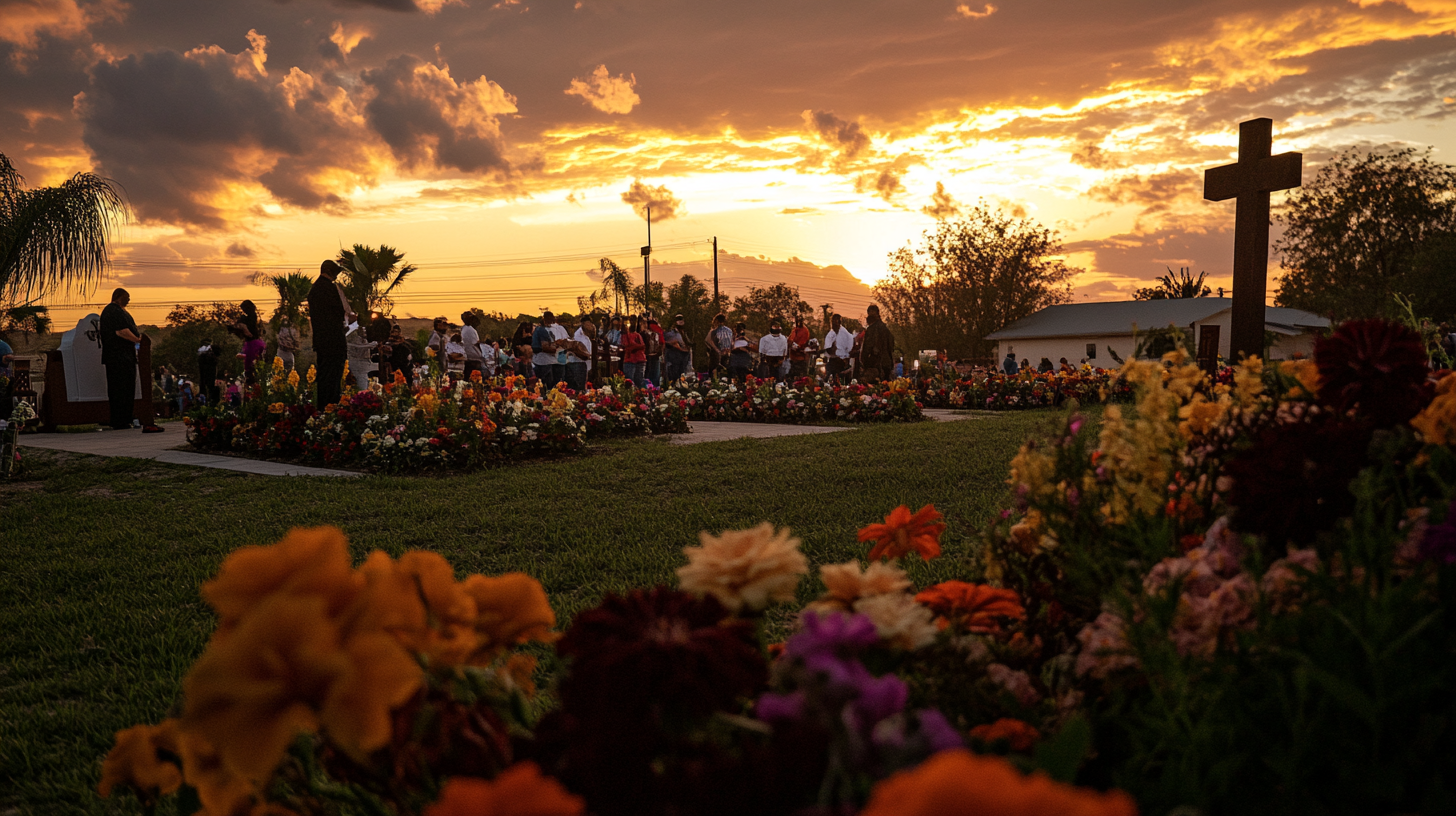Brownsville man speaks out after father killed in IED blast in Tamaulipas
A tragic incident has sent shockwaves through the Rio Grande Valley community after Antonio Céspedes Saldierna, a 74-year-old Brownsville resident, died from an improvised explosive device (IED) detonation in Tamaulipas, Mexico. The explosion, which occurred as Antonio was driving in the rural area of San Fernando, also resulted in the death of one man and injury of a woman.
An Unimaginable Loss
Ramiro Céspedes, Antonio’s son and a U.S. Army veteran, expressed his deep distress over the incident, which he terms as a terrorist attack. Having served multiple deployments in Iraq and Afghanistan, Ramiro is no stranger to the threats posed by IEDs, yet the idea of losing his father to such a device on domestic soil is deeply unsettling. “I’m sad, I’m confused, I’m in shock,” he shared, emphasizing the severity of explosive devices being used to claim territories in rural areas by organized crime.
Contextualizing the Threat
The government of Tamaulipas has been proactive in issuing warnings about the presence of explosive devices in rural roads, particularly those stretching between Reynosa and Rio Bravo, and further south towards San Fernando and Valle Hermoso. This comes in response to increasing territorial disputes involving organized crime factions notorious for deploying such lethal weapons as deterrents.
Only last month, an IED exploded near Rio Bravo, causing extensive damage to a federal water agency’s pickup truck. These occurrences highlight a grim reality faced by those residing near the border or often traveling through these regions—realities that Valley residents cannot ignore, as they affect cross-border trade and familial connections between Texas and Mexico.
A Call for Collective Action
Funeral services for Antonio took place earlier this week, marked by a somber atmosphere where Ramiro underlined his father’s legacy. Beyond mourning, he hopes this tragedy will drive local communities and authorities to take robust action against the increasing threats that risk claiming further victims.
“They’re hard-working people, they want to continue their lives there in the ejido, but it’s other individuals coming in, it’s not them fighting each other,” Ramiro said, urging for reform that shields innocent residents—like his father was—from becoming collateral damage in these violent disputes.
Local Impact: Community Response
In the Rio Grande Valley, where transnational dynamics regularly impact everyday life, Antonio’s tragic death resonates on multiple levels. Communities are keenly aware of their proximity to Tamaulipas and the challenges posed by organized crime, making this loss even more poignant.
Jose Luis Rodriguez, a community leader from Brownsville, spoke on the necessity of consistent vigilance and cooperation among communities on both sides of the border. “The Valley residents are compassionate and resilient. We are all aware that incidents like these not only affect us emotionally but also have broader socio-economic implications. Collective safety and understanding of border intricacies are key to preventing similar tragedies,” Rodriguez explained.
Efforts and Future Implications
This incident may catalyze further discourse about safety measures for those who live along the border and rely on cross-border interactions regularly. U.S. and Mexican officials frequently collaborate via joint task forces to address contributing factors to these conflicts, including smuggling and trafficking operations. However, intensified efforts may need to be explored to prevent the spread of IEDs and ensure essential travel remains safe.
The ongoing danger emphasizes how urgently solutions are needed to protect citizens and stabilize vulnerable regions. Continued dialogue between governments, ramped-up security measures on critical rural routes, and investment in community programs could form part of a multi-pronged approach.
Balanced Perspectives and Resources
While community efforts continue to unravel potential strategies to assist impacted families and prevent future incidents, it is crucial to maintain balanced perspectives. Challenges exist in allocating adequate resources and maintaining the efficiency of cross-border trade and relations amidst developing policies.
For those affected by or seeking protection against such security threats, numerous local support resources can provide guidance. Community centers across the Valley offer counseling services, and law enforcement agencies maintain close contact with residents to share vital safety precautions.
Antonio Céspedes Saldierna’s passing does not only signal a somber loss for his family but also serves as a stark reminder of unresolved security issues that demand attention. As Valley communities come together in support and remembrance, they underscore resilience and the shared hope of overcoming hardships in the pursuit of lasting peace.







